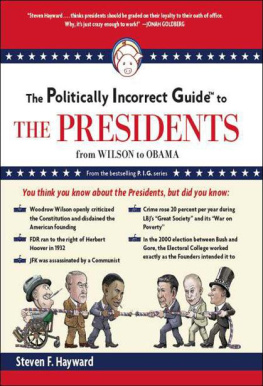The End of Greatness
Why America Cant Have (and Doesnt Want) Another Great President
Aaron David Miller

The author and publisher have provided this e-book to you for your personal use only. You may not make this e-book publicly available in any way. Copyright infringement is against the law. If you believe the copy of this e-book you are reading infringes on the authors copyright, please notify the publisher at: us.macmillan.com/piracy .
Contents
Part I
Greatness Revealed
Part II
Greatness Gone
Part III
Whats So Great about Being Great, Anyway?
Introduction
The End of Greatness?
A couple years back, I gave a talk to a group of Princeton graduate students and faculty on the indispensable role leaders play in successful Arab-Israeli negotiations. Having worked on the Middle East peace process for over twenty years, I had come to the conclusion that, far more than any other factor, it was willful leadersmasters, not prisoners, of their political houseswho produced the agreements that endure.
It proved to be a pretty tough crowd.
One graduate student insisted that I had been taken hostage by Thomas Carlyle and his Great Man theory of history. Another critic, a visiting professor from Turkey, protested that I had completely ignored the broader social and economic forces that really drive and determine change.
I conceded to both that the debate about what mattered morethe individual or circumstanceswas a complicated business. But I reminded the professor that she hailed from a land in which one man, Mustafa Kemalotherwise known as Ataturkhad fundamentally changed the entire direction of her countrys modern history. We left it at that.
History, to be sure, is driven by the interaction between human agency and circumstance. Based on my own experiences in government Wherever you stand on the issue of the individuals role in history, its impact must be factored into the equation, particularly when it comes to explaining turning points in a nations history.
Nonetheless, the professor from Turkey had a point. Today we are consumed with leaders and leadership as the solution, if not the panacea, to just about everything that ails us. We admire the bold transformational leader who seeks fundamental change, and value less the cautious transactor who negotiates, triangulates, and settles for less dramatic results. And we tend to forget too that great leaders almost always emerge in times of national crisis, trauma, and exigency, a risk we run if we hunger for the return of such leaders. Still, Holy Graillike, we search for some magic formula or key to try to understand what accounts for great leadership. And we hungrily devour the lessons from the careers of those in business, media, or politics whom we deem to be effective leaders. Indeed, we seem nothing short of obsessed with the L word.
Micah Zenko, my fellow columnist at Foreign Policy, notes that if you type leadership books into the Amazon search engine you get 86,451 results.
This focus on leaders is understandable, particularly during times of great uncertainty and stress. It is only natural and even logical to look for leaders when our fate and future appear driven by impersonal and unforeseen forces beyond our control. The psychologists and mythologists tell us that the need to search for the great leader to guide or even rescue us is an ancienteven primordialimpulse. This strong need for great leadership exists also in America, though it seems in conflict with an American creed that places a premium on self-reliance and independence, is suspicious of power and authority, and, as we will see, expresses ambivalence about the very idea of powerful leaders. In fact, an exaggerated and misplaced need for heroes and heroic leadership seems particularly incongruous and even inappropriate in a political culture that celebrates effective leadership even while constraining it, and especially at a time when there seem to be so few outstanding political leaders to be found. To complicate matters further, we misunderstand how leaders actually lead. Indeed, today we have a far too idealized, even cartoonish, view of this matter. We have a notion that the best leaders are those who are elected promising high principles, lofty visions, or big agendas and then impose them through the power of persona and persuasion. And when leaders cannot play the heros role, we attribute their failure to an inability to communicate and articulate a narrative so powerful and compelling that followers rally to the cause, and doubters and opponents have no choice but to comply or somehow melt away.
In a Shakespearean line Jack Kennedy loved, Glendower boasted to Hotspur in Henry IV (act 3) that he could call spirits from the vasty deep; So can any man, Hotspur replied, then, reflecting the leaders predicament in our age, added, But will they come when you do call for them? This call and they will come conception of leadership is more appropriate to Hollywood and to a gauzy, idealized view of our history than it is to real life in the political world. The Titanic, Democratic strategist Paul Begala quipped in reference to charges that Barack Obama had failed to craft a compelling narrative, didnt have a communications problem, it had an iceberg problem. For the aspirational leader who loves to focus on tomorrow, yesterday is ironically at least as important. More often than not, effective leaders intuit what the times make possible and then, if truly skillful, exploit and enlarge that opportunity and help shape the politics that sustain it.
Indeed, these days those who favor and align with the Carlyle crowd and the Great Man view of historymyself includedhave a serious problem.
We are now well into the twenty-first century, a full 70 years after Keegans six transformers either tried to take over the world or to save it. Look around. Where are the big heroes, the bold, breakthrough leaders, those who do not simply react to events but shape them too? Where are the giants of old, the transformers who changed the world and left great legacies? Plenty of very bad leaders have come and gonePol Pot, Idi Amin, Saddam Hussein, Muammar Qaddafi, Slobodan Miloevi c and some larger-than-life good ones too, like Charles de Gaulle, Konrad Adenauer, Anwar Sadat, Mikhail Gorbachev, Pope John Paul II, and Nelson Mandela.
Leaders, to be sure, can emerge from the most unlikely places and at the least expected and most fortuitous times. Think only of Abraham Lincoln, Mahatma Gandhi, and Martin Luther King Jr. And who knows what kind of leaders historys long arc might produce in the future?
That said, betting on the future is at best an uncertain business. Today things dont look that bright. We face a leadership deficit of global proportions. In fact, we seem to be pretty well along into what you might call the post-heroic leadership era.
Today, 193 countries sit in the United Nations, among them 88 free and functioning democracies.the United Nations Security Council, the so-called great powersthe United States, Britain, France, China, and Russiaare not led by great, transformative leaders. Nor do other rising states such as Brazil, India, and South Africa boast leaders with strong and accomplished records. We certainly see leaders who are adept at maintaining power and keeping their seatssome, like Russias Vladimir Putin and Turkeys Recep Tayyip Erdo g an, for many years. Germanys Angela Merkel is certainly a powerful leader and skilled politician; and the recently elected Indian Prime Minister Narendra Modi may well prove to be a leader to watch.
But where are those whom we could honestly describe as potentially great, heroic, or inspirational? And how many are not only great, but good with compassion and high moral and ethical standardstoo? How many will author some incomparable, unparalleled, and ennobling achievement at home or on the world stage, an achievement likely to be seen or remembered as great or transformational? Today, if I were pressed to identify a potentially great leader, I might offer up not a traditional head of state at all, but rather a religious figure: Pope Francis I, whose greatness as well as goodness may well be defined by the irony of his anti-greatness, commonness, and humility.
Next page


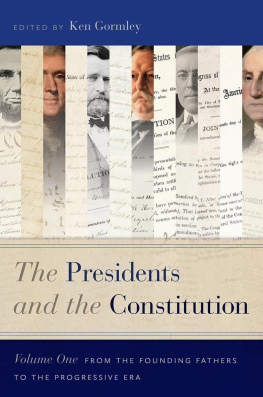
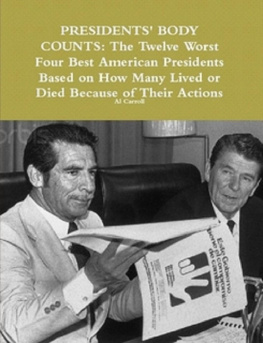
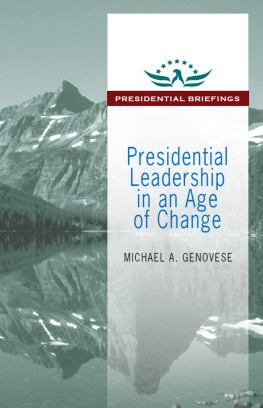
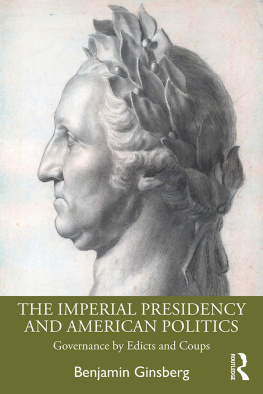
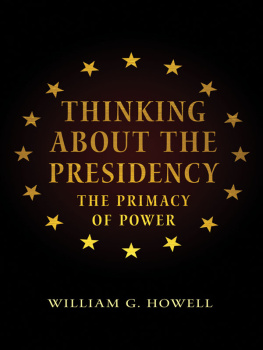
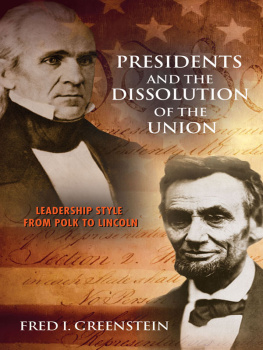
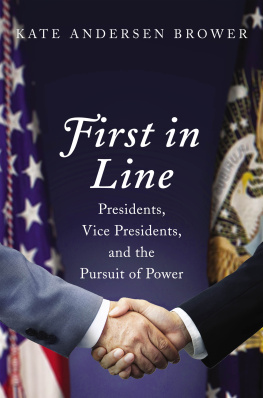
![Blackstone Audio Inc. - The politically incorrect guide to the presidents: [from Wilson to Obama]](/uploads/posts/book/167736/thumbs/blackstone-audio-inc-the-politically-incorrect.jpg)
